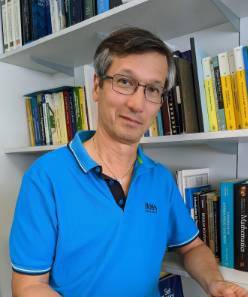Cryptography is the scientific discipline focused on ensuring secure communication in the presence of adversaries. It draws upon a wide range of tools from fields such as Pure Mathematics, Computer Science, and Engineering. Modern cryptography, in particular, relies on the complexity of solving certain mathematical problems, notably those in Number Theory and related areas. Key examples include factoring the product of two large prime numbers, computing discrete logarithms, finding short vectors in lattices, and decoding linear codes. These problems form the foundation of cryptographic protocols used today.
|
|
|
|
|
Cryptography is everywhere in our daily lives, and everyone is familiar with concepts such as Encryption, Authentication and Digital Signatures. As we delve deeper and deeper in a digital era, it is fundamental to ensure that cryptography can provide us with reliable methods for protecting our information. In particular, one of the most important and time-sensitive matters is designing Post-Quantum secure primitives. In fact, most of the cryptography in use today will be vulnerable once quantum computers with enough computational power are available. The process for designing, testing, optimizing and standardizing cryptographic primitives is long and intense, and with this in mind, the National Institute of Standards and Technology (NIST) has launched a competition to select a range of post-quantum primitives to become the new public-key cryptography standard. |
|
|
|
|
|
Apply Now |
||
 |

|

|
| Dr. Edoardo Persichetti | Dr. Francesco Sica | Dr. Veronika Kuchta |
|
|
|